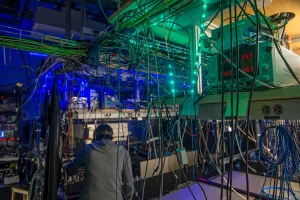Are People Prepared for Quantum Cyber Attacks?
We recently examined the evolving trends, predictions and concerns in the realm of quantum computing. The capability to process vast stores of data at unprecedented speeds presents threats to classical computing, in particular certain methods of traditional data security. Cryptographic algorithms in particular could face the risk of quantum computers, leading to recent research on developing quantum-resistant, or post-quantum cryptography (PQC) algorithms.

Indeed, a recent survey from ISACA indicates that while 62% of cybersecurity professionals (out of more than 2,600 respondents) are concerned about the issue, only 5% believe dealing with it is a high priority for their organizations, or that they even have a strategy in place. More than half also believe that quantum will alter and create new businesses and cybersecurity risks.
There are even concerns that cyber criminals could hoard encrypted data today, waiting for future quantum developments to be capable of cracking it.
Urgency of preparation is advisable to deal with the coming changes, and yet 41% of organizations don’t plan to address quantum computing at this time; more than half say they have not taken steps to prepare. Of the new post-quantum cryptography (PQC) standards finalized by the National Institute of Standards and Technology (NIST) in 2024, not even 10% feel they have a good understanding. Nearly half had not even heard of them, despite NIST working on them for over a decade.
It is concerning how unprepared too many people seem for the imminent, drastic changes quantum computing poses to data security. While research continues into methods of encryption resistant to quantum-powered attacks, it’s important to know just where things stand currently. We recently explored the two primary types of encryption – symmetric and asymmetric – highlighting the ways in which the former is in fact better situated to prevent advanced quantum attacks. Methods such as Grover’s or Shor’s algorithms could become effective at decrypting data protected by the challenge of having to brute force large number keys and discrete logarithm problems. In comparison, symmetric encryption, with its algorithms such as AES-256, may have their strength reduced by half, but the remainder would still be highly secure.
Fortunately, NetLib Security’s Encryptionizer solution is designed to utilize AES-256 symmetric encryption protocols, protecting stored data without network transport or digital certificates. For organizations that feel unprepared for a quantum future, Encryptionizer can prevent expensive data breaches through efficient, inexpensive data encryption, locking down data across all environments and with no additional programming needed. Users on active support plans will have access to any potentially necessary PQC enhancements to AES-256.
Don’t wait for quantum computing to arrive before taking action.
